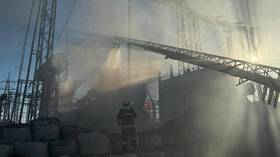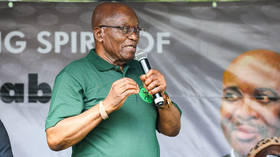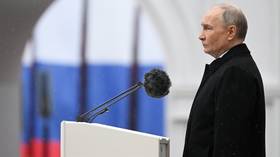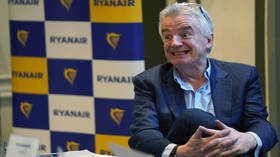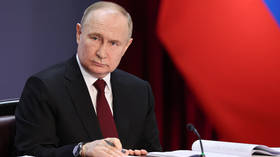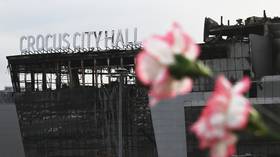What's going on in the Middle East? No, I don't know either
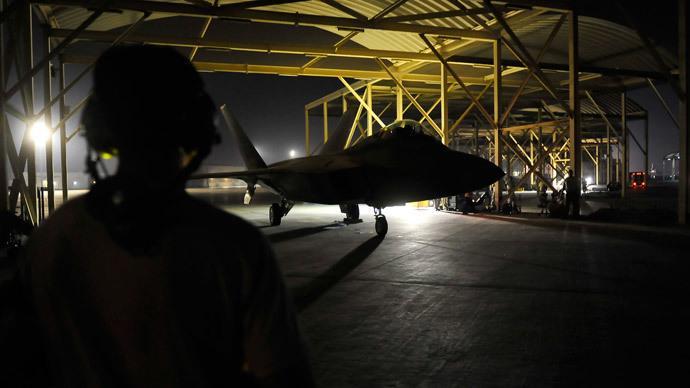
Mary Poppins never explained anything. It seems appropriate in the craziness of the Middle East as war flares up again. A US-led coalition is bombing IS, an offshoot of an organization Washington helped found, with alleged backers now assisting the US.
Certain topics are conversation starters. Others have entirely the opposite effect. On this, currently, extremely volatile planet of ours, from a European perspective, it’s quite easy to filter them.
Ukraine, Scotland and the EU are intercourse initiators. Most Europeans feel they have some grasp on the topics and around half of those are able to deliver some kind of reasonably knowledgeable opinion. Sentiments make the world go round; they sell newspapers and attract TV news viewers. However, there is one subject that, at least in Europe, engenders a similar feeling to a crying child’s effect on passion - the Middle East.
“What’s going on in that place?” is a familiar refrain, one I’ve been hearing copiously in recent months and even more intensely now. The truth is very few know and even many of the participants in the region’s conflicts have probably forgotten. To call it a mess would be deeply unkind to messes.
Last week, the UK parliament passed a bill allowing the government to assist an American-led coalition to attack the Islamic State (IS). The general mood, cultivated by a compliant local mainstream media was - “this is a good thing.” However, press a little harder and the vast majority of those who hold such a view have no idea why it’s “a good thing.” The most common reason is that any organization that severs innocent people’s heads and films the process must be extremely evil and that the planet would be better off without them. This is very true, and impossible to dismiss.
On the other hand, little of the public and, indeed, the parliament who sanctioned the military action have even an iota of what IS is about and where they came from. Whitehall and the “news” have formed an opinion that aggression will defeat aggression and IS having done themselves no favors in countering that argument. Beheading anyone, let alone the blameless (one was an aid worker, for God’s sake) is not the stuff of good PR and IS are kind of asking for it.
Never mind that the UK vote was largely carried out for an American TV audience - “if the Brits are with us it means we are not alone" - and that the UK’s impact will be negligible. You see, the days of Rule Britannia are long gone and British armed forces are in a sorry state. They've actually only been able to commit six Tornado planes, thus adding as much to the coalition as Belgium and a bit less than Denmark. Denmark has a population of just over 5.5 million - akin to the “might” of Minnesota in a US context.
This is a sad reflection of how far the UK has fallen in power terms. London is now, essentially, the equivalent of an aged matinee idol. The looks have shriveled, but the reputation of past greatness lives on and the name still means something in Hollywood. Basically, the UK is Julie Andrews. Like Julie, it hasn’t done much recently but, to an older American audience, the mere mention of the name conjures respect - plus, unlike Peter O’Toole and Elizabeth Taylor, the UK and Ms Andrews are still with us.
The fact that the UK is, pretty much, useless (except for optics) in the fight against IS, hasn’t stopped the domestic media from producing wall-to-wall coverage. I followed the Guardian’s live blog yesterday (Sunday) and it was far from riveting stuff. “RAF Tornadoes return to Cyprus without finding targets,” was the biggest story. That’s right up there with “Thomas Muller plays for Bayern Munich, but doesn’t score” - a headline I don’t expect to see on the sports pages.
So what is going on in the Middle East? Why is Ukraine (finally) off the 24 hour news cycle and why is everyone there suddenly feeling so lonely? On Sunday, they demolished a Lenin statue in Kharkov in a desperate bid for attention, even throwing in a few Nazi flags - it didn’t work. There was nothing on mainstream TV news about it - a terrible waste of a good monument.

The UK and USA and a few of their fellow travelers fully support the nascent Iraqi government. These guys were elected by the system Bush and Blair imposed after they’d murdered over 600,000 people, according to The Lancet. Meanwhile, the Islamic State loathes the Baghdad regime. This is because IS are Sunni Muslim and the Iraqi rulers are largely Shia. Islamic State is an offshoot of Al-Qaeda, which was a by-product of the Mujahedeen which was, more or less, founded by Zbigniew Brzezinski and former US President Jimmy Carter. Brzezinski is proud of this because it hurt the USSR and to the Polish-born conflict enthusiast, anything to do with Russia is a very bad thing. The Warsaw warmonger was recently seen stoking up the problems in Ukraine, proving, at 86-years of age, that bloodlust doesn’t always wither with time.
IS’ biggest backer is Saudi Arabia, a despotic theocracy which the “freedom” lovers in Washington simply adore. Iraq’s Nouri Al-Maliki, who recently vacated the post of prime minister, has publicly outed both Qatar and the Saudi’s as having funded IS. The latter is now involved in air strikes against the same IS and is helping to train so-called moderate Syrian rebels. These will be, presumably, the bad guys in the next war. Meanwhile, Qatar is also involved in the military effort. What both these dictatorships have in common is that their real target is Syria’s Bashar Assad and they, presumably feel confident that the US will take out Assad as well as IS, in a two birds with one stone way. Russia has previously staunchly supported Assad. So, unless a back room deal has been done, Ukraine for Syria, as some have suggested, this is likely to lead to a confrontation between the world’s two largest military powers - Washington and Moscow. This scenario is extremely worrying. The world order needs it, at this moment, about as much as a Polar Bear needs a sauna.
The US despises Iran, but Tehran is fully supportive of the Iraqi regime against IS. This means, that at least for now, Iran and the US are temporary allies, if not quite friends. Of course, Russia is pals with Iran, as well as Syria, so Moscow may yet be forced to choose. Unless, as I said, some deal has been done - which is possible but, given the state of US-Russian relations, unlikely. However, in this completely bonkers situation, “unlikely” could become “likely.” Black could also become white and water - oil. The Middle East is the cradle of miracles, from Noah to Jesus to Mohammed, so anything is possible around those parts.
A letter writer to London’s Daily Mail last week, one Aubrey Bailey of Hampshire, England delivered the best description of what the above means. “Some of our (UK) friends support our enemies and some of our enemies support our friends, and some of our enemies are fighting against our other enemies, whom we want to lose, but we don’t want our enemies who are fighting our enemies to win. “
“If the people we want to defeat are defeated, they might even be replaced by people we like even less. And all this was started by us invading a country to drive out terrorists who weren’t actually there until we went in to drive them out. Do you understand now?” Take a bow, Aubrey. That’s the best explanation I have read and it deserves some kind of award.
Do you understand now? No, I didn't think so. If it’s any consolation, I have no idea either and I’m not going to pretend I do. What’s more, I will bet the house on the fact that nobody else has a clue - even in Washington. It seems that in the game of Middle East geopolitics and conflict, anything could happen next. Somewhere, a select few are gaining from this continuous tumult, while the 99.9 percent suffer.
“First of all I would like to make one thing quite clear… I never explain anything,” exclaimed Julie Andrews in Mary Poppins. In this case, it’s just as well.
The statements, views and opinions expressed in this column are solely those of the author and do not necessarily represent those of RT.
The statements, views and opinions expressed in this column are solely those of the author and do not necessarily represent those of RT.



